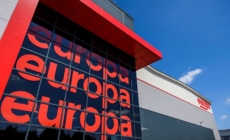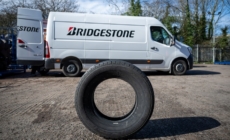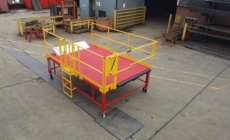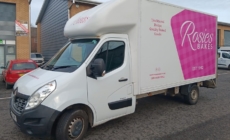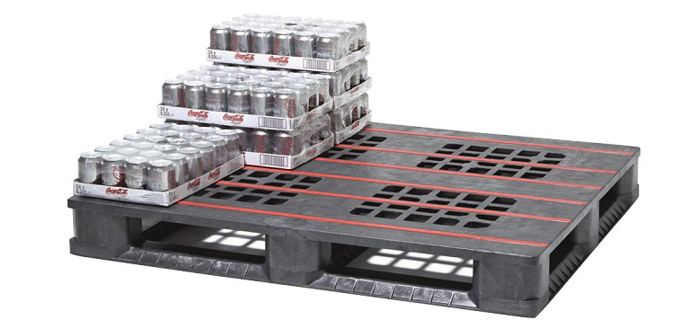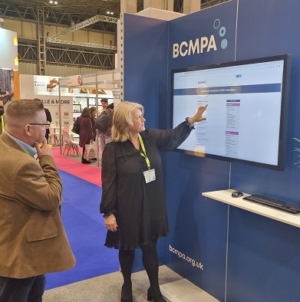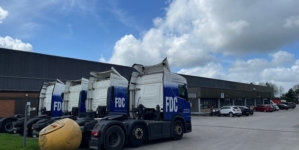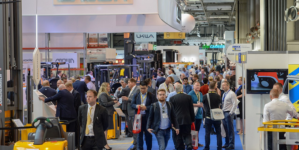-
Kammac Supports Nimble’s Expansion into 500 Tesco Stores - April 5, 2024
-
Axiom Sustainability Software launches groundbreaking Social Value Calculator - April 4, 2024
-
Change to minimum wage and its impact on logistics - April 3, 2024
-
PARKSAFE GROUP TEAMS UP WITH QUECLINK WIRELESS SOLUTIONS IN FLEET TECHNOLOGY PARTNERSHIP - March 27, 2024
-
Facing shocking levels of violence at work – yet not paid enough to live on: 57% of UK retail staff say their wages barely cover basic expenses, despite many working more hours than ever - March 26, 2024
-
Bridgestone proving the worth of its Duravis Van tyre through academic study - March 25, 2024
-
Fleetmaxx Solutions announces Vanaways partnership - March 25, 2024
-
Lightweight Loading Platform Proves Its Heavyweight Credentials for AG Transport - March 20, 2024
-
ROSIE’S BAKES SELECTS INTEGRATED FLEET TECHNOLOGY SOLUTION FROM INSEEGO AND POCKET BOX - March 20, 2024
-
Rite-Hite’s HVLS Revolution fan keeping climbers cool at Boulder Central - March 14, 2024
High quality pallets at an affordable price: How an entire industry benefits from switching from wood to plastic.
Pool palette with a breakage rate of less than one percent per trip
Dranken Pallet Beheer Holland (DPB), the joint pallet pool for Dutch beverage producers and breweries, replaced their wooden pallets with plastic pallets from Cabka-IPS. In hindsight it is clear: The changeover was well worth it. Thanks to the plastic pallets, the costs for logistics and rental fees have been significantly reduced.
Already back in 2012, Dranken Pallet Beheer Holland (DPB) decided to completely replace its wooden pallet pool with Cabka-IPS plastic pallets. Part of the objective with the new pallet was to offer all pool participants the highest quality at a low cost whilst improving occupational safety. How was this goal achieved and what enticed DPB to switch from wood to plastic?
The requirements
Before the changeover, 800,000 wooden pallets were in circulation in
the DPB pool. These caused high repair costs, dirt due to chips and shavings, increased weight in wet conditions, and high disposal costs for heavily damaged or contaminated pallets. For this reason, the new heavy load pallets made of plastic had to be tough, durable, significantly lighter, less prone to repairs, and ecologically feasible at the end of their service life.
The solution: BPP i9
With the BPP i9, Cabka-IPS developed a tailor-made load carrier that met all DPB requirements. As the successor of the wooden pallet, it was important to DPB that the BPP i9 would seamlessly fit into the existing storage and transport systems, which were configured for handling the wooden pallets. The forklift pockets, deck height, and blocks of the BPP i9 thus feature the same dimensions. The measurements are 1200 x 1000 x 169 mm.
But unlike its wooden predecessor, the BPP i9 is a real lightweight. It weighs only 25 kilograms and is thus 15 kilograms lighter than the wooden pallet. This has many advantages. On the one hand, this makes everyday handling of the pallets much easier for the production specialists. On the other hand, the lower weight leads to a significant reduction in CO2 emissions in the logistics centers, warehouses, and during transport by truck. Moreover, improvements were made in terms of load securing and occupational safety: Anti-slip strips secure the transported goods on the pallet; rubber blocks under the pallet prevent slipping, particularly with block stacking; rubber stoppers under the deck prevent slipping from the fork.
The most significant advantage of the BPP i9 for the participants of the pallet pool is the pallets’ stable design. As the comparison of breakage rates shows, the pallet is considerably more resilient and durable than its wooden predecessor. While the wooden pallets had a breakage rate of 25 percent annually, the current annual breakage rate of the BPP i9 is only about six percent. On average, the pallets complete about nine trips in the DPB pool per year. This means the breakage rate is less than one percent per trip. This considerably reduces repair costs. Less damage to the pallet also means less damage to the goods. Using the BPP i9 has yielded a significant reduction in broken goods during production and processing, particularly in terms of sensitive goods such as glass bottles or cans.
Thanks to the wide-ranging cost savings, an important overriding goal has been achieved: The monthly rental fee paid by all pool participants for using the plastic pallets was significantly reduced. A total of 530,000 pallets are now successfully in use in the DPB’s pallet pool.
Besides economic sustainability, ecological sustainability is an important pillar in the collaboration between Cabka-IPS and DPB to this day. It is for this reason that the BPP i9 has been manufactured from recycled materials since the beginning of the partnership, and at the end of its life cycle the pallet is recycled again and used for new BPP i9 pallets. Cabka-IPS and BPP thus support cradle-to-cradle production: Instead of ending up in the refuse incinerator, worn-out pallets are used as raw material for new pallets and thus continuously recycled in a closed circuit.




